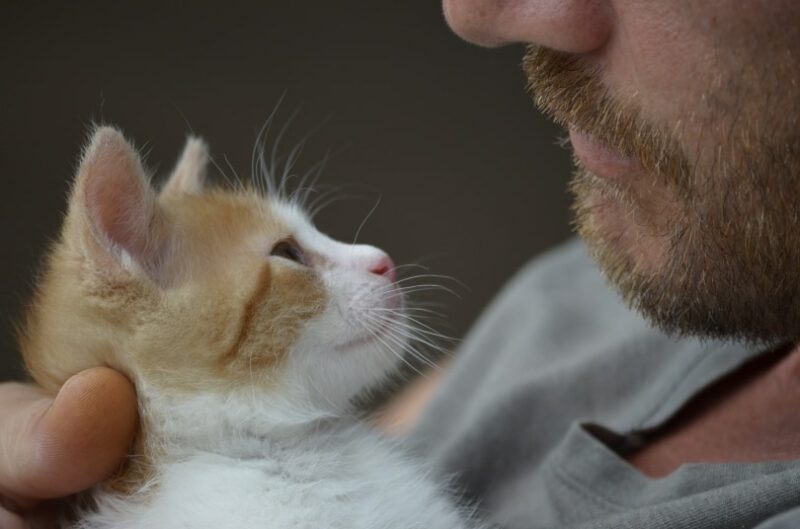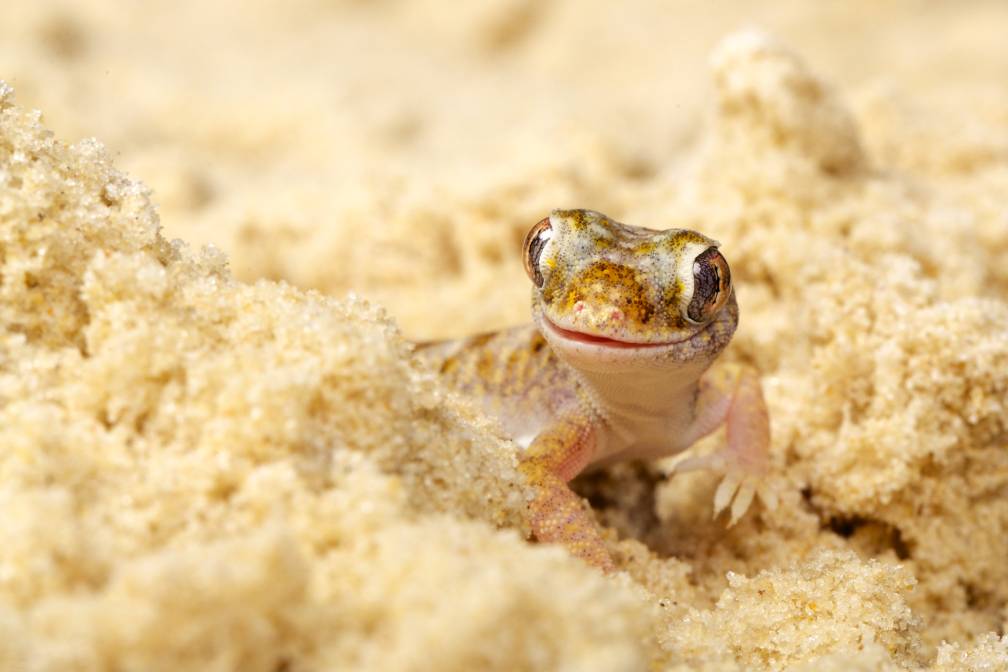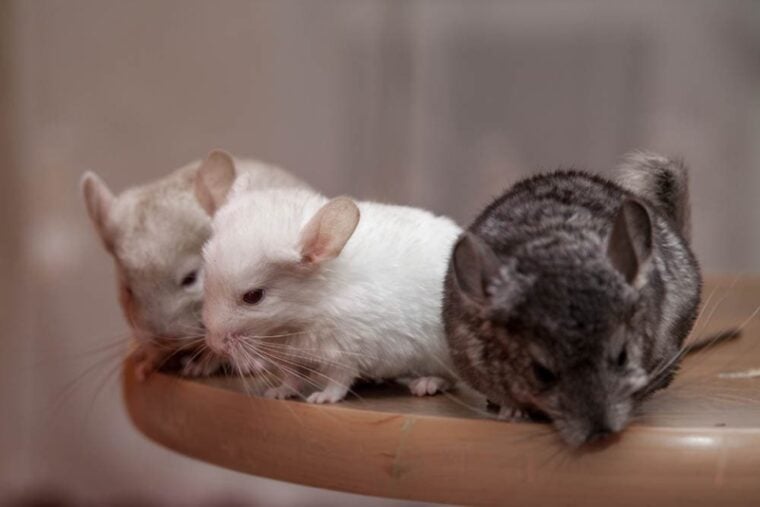
If you’re new to Chinchilla ownership and have been wondering what some of their behaviors and sounds mean, you’re not alone. Chins are fascinating little animals and they make great pets. But have you ever noticed your Chinchilla vibrating or making a purring sound? Do Chinchillas purr?
Chinchillas make a variety of sounds for different reasons, and while they might sometimes make purr-like sounds, Chins don’t actually purr.
Here, we get into all the different sounds that Chinchillas make and why they make them. This way, you can better understand your Chin.
What Sounds Do Chinchillas Make?
Chinchillas aren’t the noisiest pets out there, but they do make several calls and sounds. There are around eight different noises, and each has its own meaning.
1. Gentle Squeaking
This is a gentle chirp that Chinchillas start making at birth. It’s used when the Chin is comfortable and to alert other Chinchillas to their presence. Chins also use it when they are curious and excited about something.
This little chirp is typically associated with a happy and inquisitive Chin and is also known as “supplication.”

2. Persistent Squeaking
A gentle but constant squeaking sound is a positive noise that Chins make. You’ll typically hear it when the Chinchilla has come into direct contact with something that they think is pleasant.
This might be another Chinchilla, a treat, some other object, or even their owner. Essentially, the Chin is letting everyone know that they are happy and excited about something.
3. Barking
The bark is a common sound that Chinchillas make. It almost sounds like a dog’s bark, being loud and harsh. It typically consists of five short vocal sounds.
Chins will sometimes bark when they are introduced to an unfamiliar environment, and it is used as an alert when the Chinchilla feels threatened. They direct the bark toward the threat, and it’s also used to warn other Chinchillas.
When the Chins hear the bark, they usually go into hiding and wait until they deem it safe to come out.

4. High-Pitched Shriek
This is an alarm call that is expressed as a loud shriek or squeal. It is one of the least common of the Chin’s calls.
They will use the alarm sound when they are cornered, as a way to warn off the predator. But they also use this sound when they are in pain, overly agitated, or excited.
The alarm call will continue until the threat is gone, and other Chinchillas will hide and wait when they hear it. Check on your Chin immediately if you hear them make this noise!
5. Teeth Grinding
When your Chin is happy and relaxed, they will start making teeth-grinding noises. You’re likely to hear this sound when feeding your Chinchilla a treat or sometimes during a nice cuddle session.
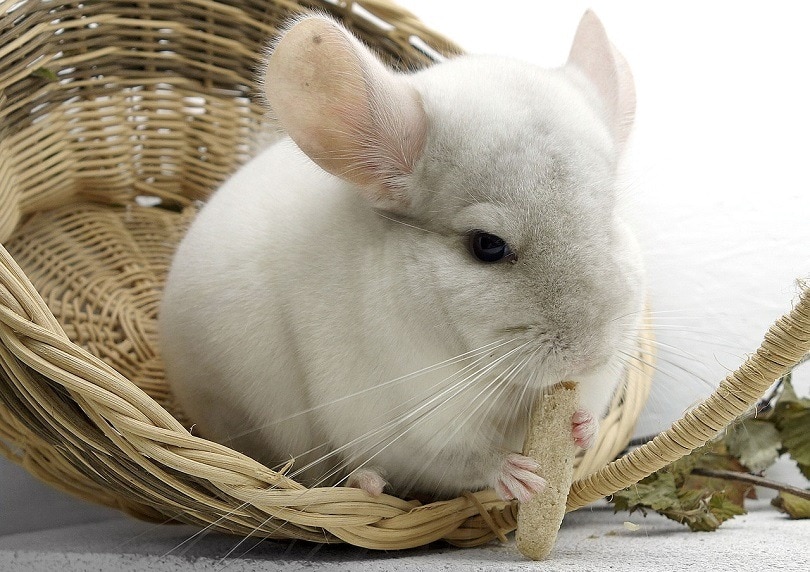
6. Teeth Chattering
Teeth chattering differs from teeth grinding, as it’s a warning to keep away! That said, some Chins will also chatter when they are happy. It should be taken in context to the situation, and you should be able to tell just by looking at your pet if they are relaxed or angry.
7. Spitting
This is the sound of spitting rather than the act of spitting. Chins will make a coughing or spitting sound, which is also known as kacking. This is an angry, defensive sound that generally means you should keep away.
Given time alone, they will calm down, but if it seems to go on for a long time, there could be something wrong with your Chin, so speak to your vet at this point.
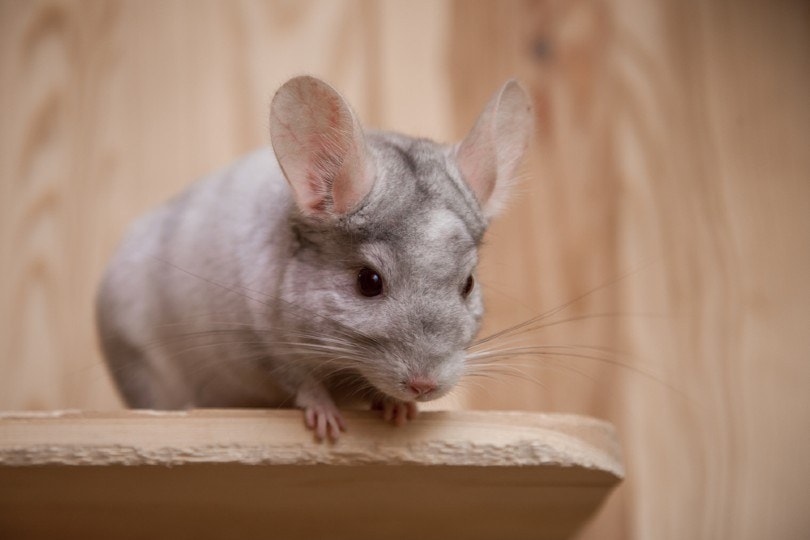
8. Fighting Sounds
Chins are social, so it’s usually recommended that they have at least one other Chinchilla around for company, but this could lead to fighting, particularly if there are two males.
If your Chins are fighting, you’ll hear a frantic, barking sound that is irregular both in timing and volume. Chins may fight over territory, food, or a female, so you’ll need to consider placing the males into separate enclosures.
 Do Chinchillas Vibrate?
Do Chinchillas Vibrate?
There are a few occasions that can cause Chinchillas to vibrate, which might be mistaken for purring.
1. Cold
This is a common way for any warm-blooded mammal to try to stay warm. However, your Chin shouldn’t shiver in air conditioning or what is considered average room temperature.
Their native home in the Andes Mountains has led Chinchillas to become quite adapted to extreme weather, so if you see your Chin shivering and it is cold outside, consider moving the enclosure. Just ensure that it isn’t in a cold draft or direct sunlight.
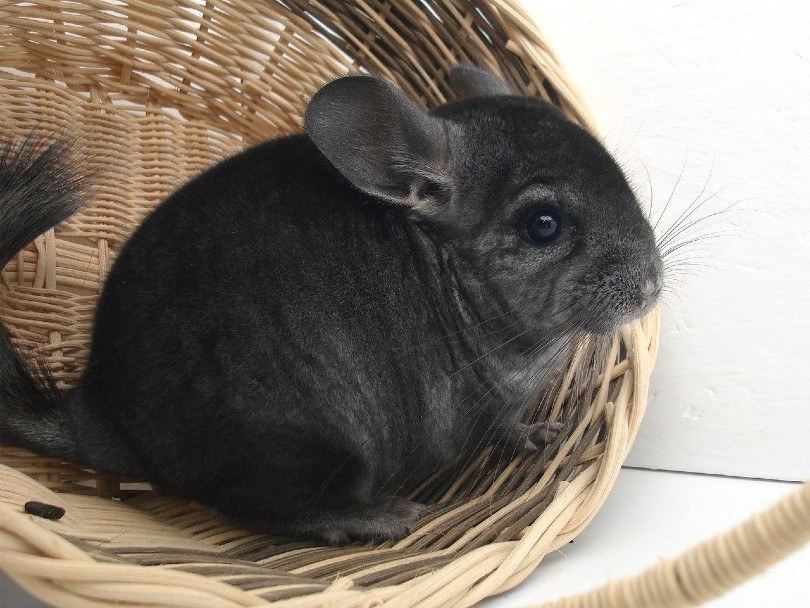
2. In Pain
Chinchillas might vibrate or shake when they are in pain. If the shaking goes on for some time, speak to your vet.
3. Illness
Chinchillas are hardy animals, so they aren’t prone to severe illnesses, but if Chinchillas become sick, they can shake. This could be from fever, end-of-life medical conditions, muscle or nerve diseases, or heart or lung issues that cause difficulty breathing (which could resemble shaking).
If your Chinchilla is lethargic (or is otherwise showing signs of illness) in addition to the shaking, you should take your pet to see the vet.
4. Scared
Shivering when in fear or extremely stressed is caused by the adrenaline released when the fight-or-flight response kicks in. It can cause the Chin to gently vibrate or experience full-on body shakes.
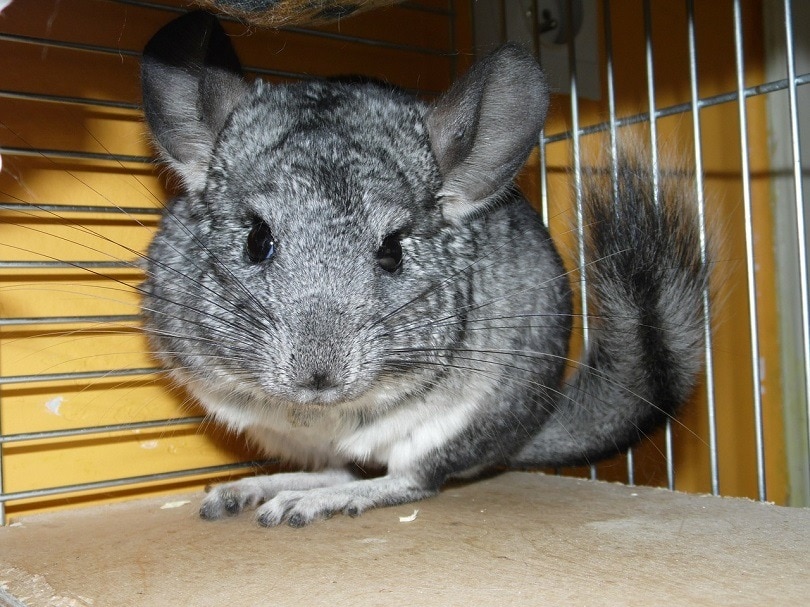
5. Sexual Excitement
If your male Chin is feeling frisky, he may vibrate gently. If there’s a female around, he will rub up and down on her body or if there isn’t a female around, on you. They usually make soft noises while giving you or a female Chin a vibrating embrace.
6. Happiness
This is where the happy vibrations might be mistaken for purring. Chins will sometimes vibrate gently when they are spending time with you. They also do this kind of affectionate vibration with other Chinchillas, so count yourself lucky if you’re on the receiving end.
Chins usually only vibrate like this when they trust and are comfortable with you. They might also make soft, happy noises while vibrating.
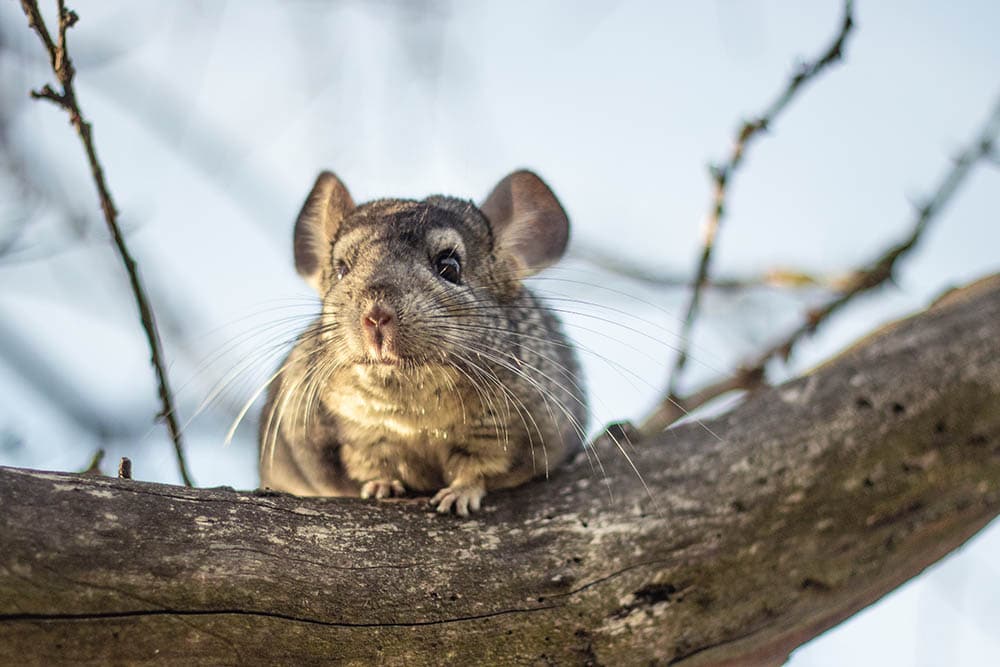
When Are Chinchillas Loudest?
Chins are crepuscular, which means they are most active at dusk and dawn. In the wild, these are the best times to forage and hunt, as a way to avoid predators and the heat during the day.
However, they can also be active at night, so you can expect more activity, along with more calls and sounds, from a pet Chin at this time. Keeping them out of your room overnight is probably for the best for the sake of your sleep quality.
Conclusion
Chinchillas do not purr, at least not in the conventional sense. They might make sounds that could be mistaken for purring, and they also make happy vibrations.
It’s a great idea to become familiar with your Chin’s behaviors and noises so you can understand your pet better. This makes it easier to know when something is wrong. If your Chin is making loud sounds that you haven’t heard before, you should speak to your vet.
Remember to always take a close look at your Chin if they are making unusual noises. You should always base your judgment on the sounds that they make in context, as they are amazing little animals with complex communication systems.
Featured Image Credit: Luniaka Maria, shutterstock


 Do Chinchillas Vibrate?
Do Chinchillas Vibrate?
